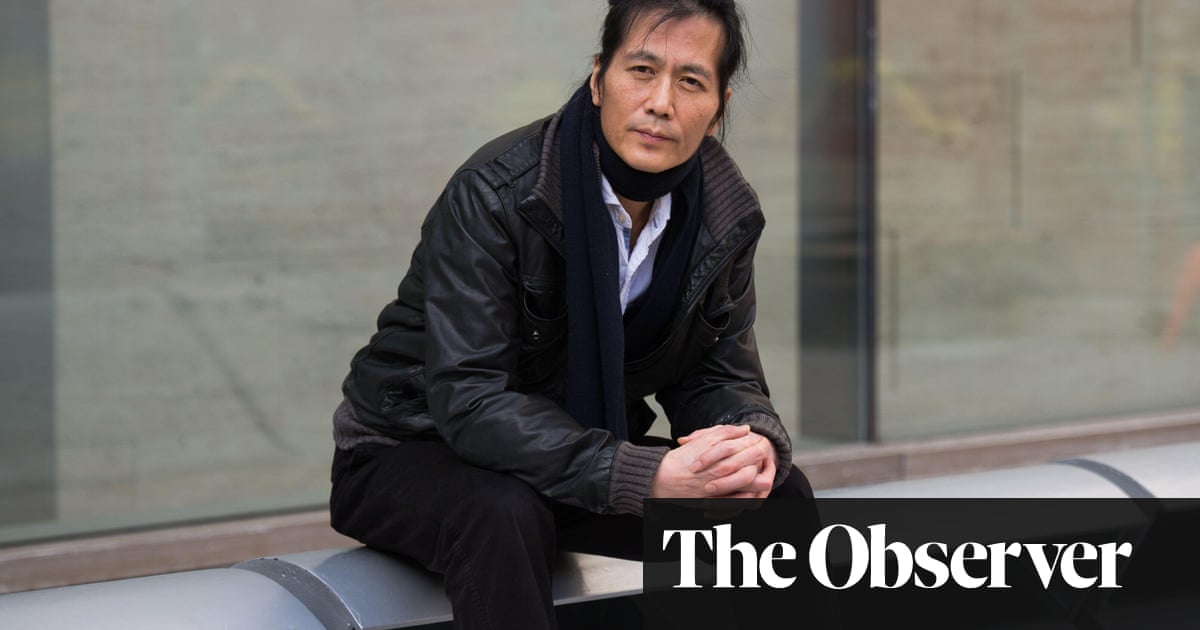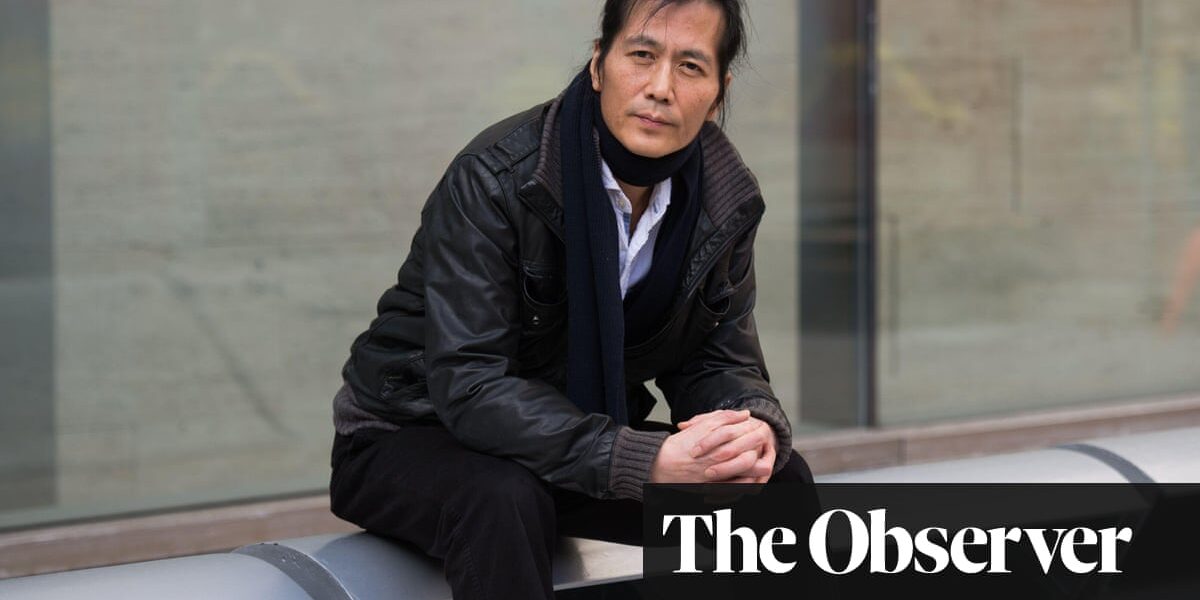The Impact of Big Tech on Storytelling: A Review of Byung-Chul Han’s “The Crisis of Narration”

I
In the puppet animation film Anomalisa by Charlie Kaufman, all the characters appear and talk in the same manner. It seems as though the concept from Kaufman’s previous film, Being John Malkovich, where Malkovich observes a restaurant and realizes that everyone has his face and voice – including servers, customers, and possibly a dog passing by – has now expanded to a worldwide scale.
The narrator, a motivational speaker named Michael Stone, experiences a moment where his mouth falls into his hands and speaks independently. Despite being artificially intelligent and predictable, the guru’s inspiring speeches do not require a physical or spiritual presence to be effective.
However, things get even worse. Life coaches and other authoritative figures constantly encourage each puppet to showcase their uniqueness. But how can they do so when they are all identical and have access to the same predetermined patterns? This is the absurd reality of modern society.
Byung-Chul Han, a philosopher from Korea and Germany, argues that Kaufman’s puppet hell accurately portrays the reality of our information-driven and technology-obsessed society. According to Han, humans have devolved into “phono sapiens” due to the overwhelming presence of smartphones and ChatGPT. He suggests that we are all now like Big Brother, constantly surveilling and being surveilled. In his many books since 2015, Han compares smartphones to Catholicism, serving as both a handheld confessional and a tool for effective surveillance. In his book Psychopolitics, published in 2017, Han notes that power is most effective when it delegates surveillance to individual people. Unlike the methods used by Big Brother in George Orwell’s 1984, the tech giants like Elon Musk and Mark Zuckerberg do not need extreme measures such as rats, torture chambers, and propaganda to maintain control. Instead, they rely on the complicity of individuals in their own oppression.
In his latest publication, Han discusses the harmful consequences of this decline in storytelling. In the past, storytelling brought us together as a community around the campfire, allowing us to reflect on our history and imagine a brighter future. However, the digital screen has replaced this fire, causing us to present artificial versions of ourselves to an unseen audience, conforming our appearance, lifestyle and beliefs to societal standards. According to Han, this subtle form of control constantly pressures us to share our thoughts, express our desires and conform to social media norms by posting, sharing and liking messages.
According to him, we used to tell stories, but now we sell them – a phrase he is fond of and uses often in this book.
According to Han, humans have become tools for capital, willingly reducing ourselves to data that can be exploited and controlled. This has led to individuals like Musk becoming extremely wealthy while the rest of us are reduced to being mere content providers. We use data from devices like Fitbits to create mundane stories about our fitness journeys and embellish our holiday experiences with selfies and suggestive photos of our meals, adhering to societal expectations of leisure time. However, in doing so, we have lost our uniqueness, our humanity, and our capacity to authentically tell stories instead of simply performing for others.
When we are not creating narratives, we are consuming them. The CEO of Netflix, Ted Sarandos, once explained that their company’s focus is on providing customers with desired content. However, what he did not mention is that Netflix (along with other streaming platforms) creates content that is easily consumed, with predictable plot lines, in order to encourage binge-watching. This approach does not leave room for unheard perspectives or alternative storytelling methods that do not align with the algorithms. As a result, viewers are being conditioned and treated as mere consumers, as Han writes, “Binge-watching reflects the prevailing mode of perception in contemporary society.”
However, humans are not simply born with the tendency to deceive and present ourselves falsely. We have also become entangled in the opposing desire to reveal every detail about ourselves, in the pursuit of honesty and complete transparency. We adhere to the relentless ideologies of the dominant technology company in Dave Eggers’s novel The Circle, which states “Secrets are lies. Sharing is caring. Privacy is theft.” These beliefs are considered the guiding principles of humans.
Due to this, we have transformed into Pinocchios sporting charming button noses, internalizing the standards of complete honesty and individual openness (ignoring politicians’ deleted WhatsApp messages), as these sets of data can be turned into profitable resources.
Instagram provides lessons on how to craft stories that cater to popular demand and achieve the coveted influencer status. One online course advises focusing on your location, food and drink choices, companions, and standout moments as prime material for Instagram Stories – brief snapshots of people’s lives that disappear after 24 hours on the platform.
Hannah Arendt recognized the ordinary nature of evil in Adolf Eichmann. If she had been alive to use Instagram, she may have also observed the commonplace nature of storytelling. The key is to keep it lighthearted, concise, and temporary. This is what fuels the machine the most.
I found Han most relatable when he reflects on the strange death of storytelling in GP surgeries. “The spirit of narration does not fit with the logic of efficiency,” he notes. Doctors have neither the time nor the patience to listen. It’s a bracing point, but reality outstrips it: instead of telling my GP my ailments, today I am encouraged to post symptoms on an app called Dr iQ, which is designed to make medical care more efficient. But, as with Instagram Stories, only certain forms of narration are permissible: the app encourages patients to cram symptoms into tick boxes that seem devised expressly to prevent one giving a rich, subjective account of how one is feeling. We are reduced to identikit puppets with identikit symptoms. Quality of care? A tale told by an idiot, signifying nothing.
I admire Han’s writing style. His lengthy and insightful essays, composed of brief chapters and cryptic sentences, are driven by a sense of forewarning, similar to Cassandra’s prophecies that often go unheeded. Interestingly, however, Han lacks the ability to tell a captivating story. Like many men (as it often goes), he writes with an air of infallibility, frequently making statements that prompted me to exclaim “No!” in the margins. For instance, he asserts, “Today, children are simply digital beings devoid of morality.” Is this true for all children? I believe that children have the potential to resist societal norms and are not doomed to blindly follow the foolishness of modern technology. The reality is more complex. The most compelling narratives are multifaceted, a concept that Han seems to overlook.
Han, along with many German intellectuals since Goethe, has a tendency to express himself in a commanding manner. This is a common trait among writers and does not allow for differing opinions. However, this poses a problem for a book that claims to celebrate narrative storytelling in all its multifaceted and contradictory nature. The most compelling stories are often filled with intricacy, ambiguity, self-reflection, conflicting viewpoints, and emotional depth. Unfortunately, despite Han’s impressive writing abilities, these are all qualities that are lacking in this book.
Source: theguardian.com


